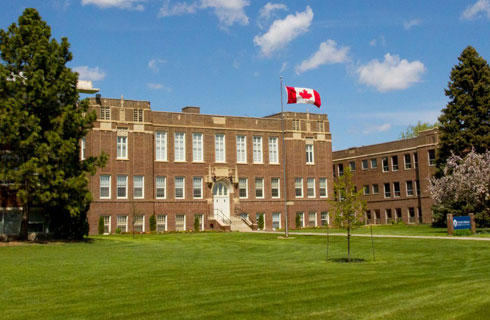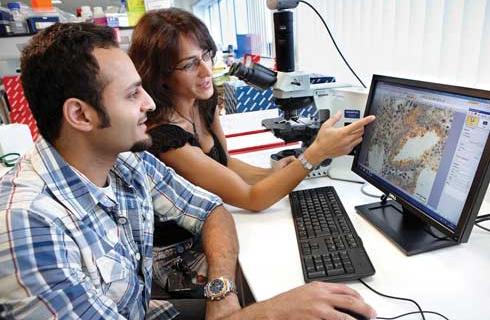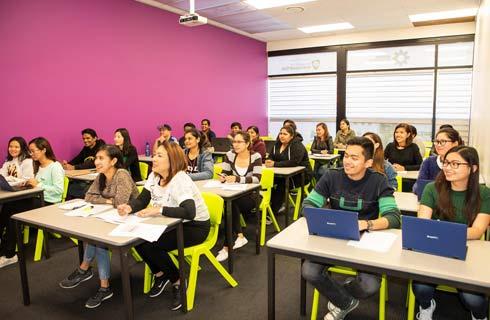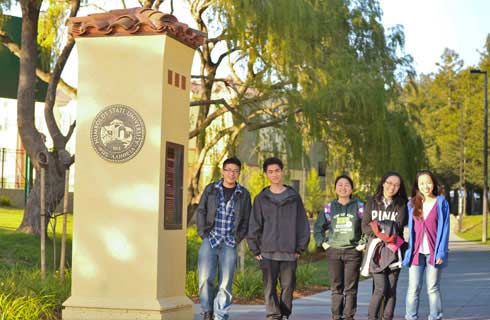- IDP China>
- 课程库>
- 自然科学>
- 自然科学与物理学>
- 数学科学>
- Bachelor of Advanced Science (Honours) - Statistics [Specialisation]
Bachelor of Advanced Science (Honours) - Statistics [Specialisation]

学历文凭
Bachelor Degree with Honours

专业院系
Statistics

开学时间

课程时长

课程学费

国际学生入学条件
International Baccalaureate Diploma - 38
IELTS overall 6.5, reading 6, writing 6, speaking 6, listening 6. For other English Language Proficiency Tests and Scores approved for UQ
TOEFL IBT - Overall 87, listening 19, reading 19, writing 21 and speaking 19.
TOEFL PB - Overall 570, listening 54, reading 54, writing 59/5.
IDP—雅思考试联合主办方

雅思考试总分
6.5
- 雅思总分:6.5
- 托福网考总分:87
- 托福笔试总分:570
- 其他语言考试:Pearsons - Overall Score of 64 and 60 in all sub bands.
CRICOS代码: 079390F
申请截止日期: 请与IDP联系 以获取详细信息。
课程简介
相关申请
 预科
预科 奖学金
奖学金 实习机会
实习机会 在校学习
在校学习 跨境学习
跨境学习 校园授课-线上开始
校园授课-线上开始 在线/远程学习
在线/远程学习
开学时间&学费
学费信息仅供参考,请与IDP联系以获取详细信息
| 开学时间 | 时长 | 学费 | 地点 |
|---|
关于昆士兰大学

昆士兰大学(简称UQ)位于澳大利亚布里斯班,一直位于世界一流大学之列,在教学、学习和研究方面都有着无与伦比的卓越成就。昆士兰大学在全球享有盛誉,通过提供知识领导力来创造积极的变化,从而建设更美好的世界。昆士兰大学经常跻身世界一流大学行列,其中包括: 根据 2024 年世界大学科学论文绩效排名(NTU 排名),排名第 40 位。 2024 年《美国新闻》全球最佳大学排名第 41 位 2025 年 QS 世界大学排名第 40 位 2024 年世界大学学术排名第 63 位 2024 年泰晤士高等教育世界大学排名第 70 位昆士兰大学十分注重教学质量,获得的国家级教学奖项比澳大利亚任何其他大学都多。超过55000 名在校学生,包括 21500 名国际学生,在三个美丽的校区为一个多元化、包容性的社区做出了贡献。昆士兰大学以其轻松安全的生活方式、亚热带气候和充满活力的多元文化而闻名于世,学生在这里可以享受到世界上最好的校园生活。在课堂之外,大学还提供一系列令人兴奋的活动,满足学生的课外兴趣。昆士兰大学屡获殊荣的职业与就业服务为学生毕业后获得竞争优势提供支持。学生可利用每年举办的就业研讨会和社交活动,与大学广泛的校友和专业合作伙伴建立联系。昆士兰大学培养的毕业生在全球享有盛誉,他们随时准备开创成功的事业,成为各自领域的佼佼者。昆士兰大学 35.0 万名毕业生组成了一个全球校友网络,遍布 190 个国家,拥有 17700 多名博士。
本校相关课程

流行病学硕士
学历文凭
Masters Degree (Coursework)
开学日期
课程费用总额


教育学硕士-行为管理
学历文凭
Masters Degree (Coursework)
开学日期
课程费用总额


计算机科学研究生证书
学历文凭
Graduate Certificate
开学日期
课程费用总额


计算机科学硕士
学历文凭
Masters Degree (Coursework)
开学日期
课程费用总额


计算机科学研究生文凭
学历文凭
Graduate Diploma
开学日期
课程费用总额


工商管理研究生文凭
学历文凭
Graduate Diploma
开学日期
课程费用总额

其他相关课程

King's International Foundation - Mathematics and Physics (Extended)
 伦敦国王学院
伦敦国王学院学历文凭
Foundation for Undergraduate
开学日期
课程费用总额


Master of Science (by Dissertation) Mathematics
 埃塞克斯大学
埃塞克斯大学泰晤士高等教育世界大学排名:339
学历文凭
Masters Degree (Research)
开学日期
课程费用总额


理学学士(高级)(荣誉学位)-应用数学
 悉尼大学
悉尼大学泰晤士高等教育世界大学排名:54
学历文凭
Bachelor Degree with Honours
开学日期
课程费用总额


理学士(荣誉)-金融数学和精算学
 爱尔兰国立科克大学
爱尔兰国立科克大学泰晤士高等教育世界大学排名:378
学历文凭
Bachelor Degree with Honours
开学日期
课程费用总额


研究生文凭-数学教育
 怀卡托大学
怀卡托大学学历文凭
Postgraduate Diploma
开学日期
课程费用总额


理学士(荣誉)数学
 亚伯大学
亚伯大学泰晤士高等教育世界大学排名:608
学历文凭
Bachelor Degree with Honours
开学日期
课程费用总额










